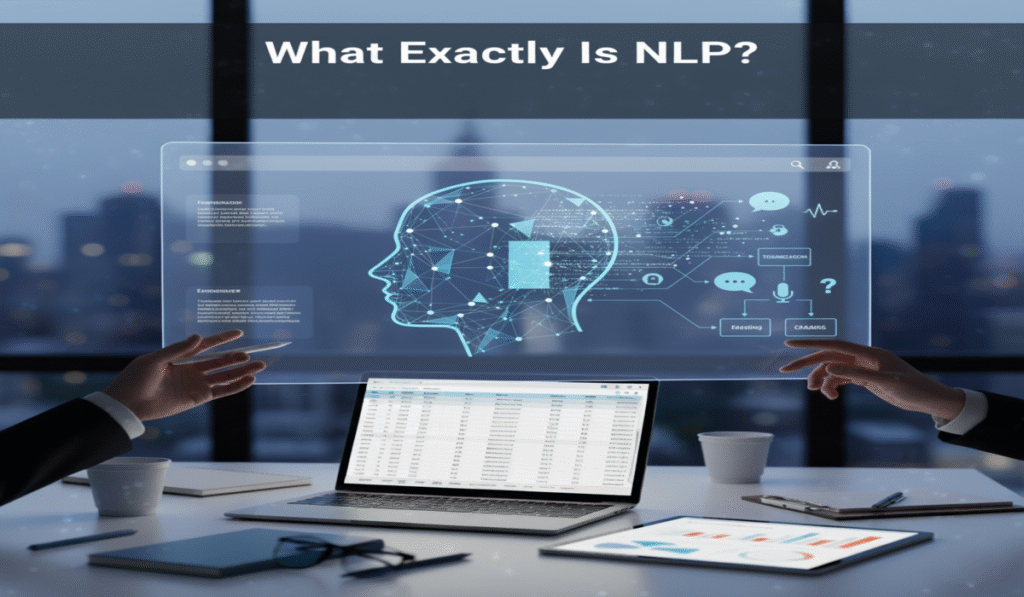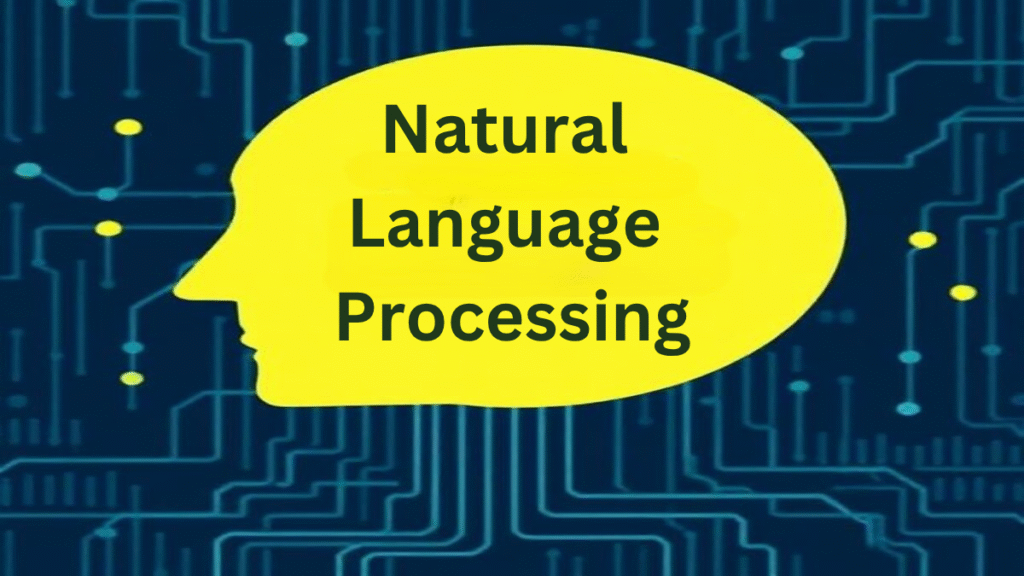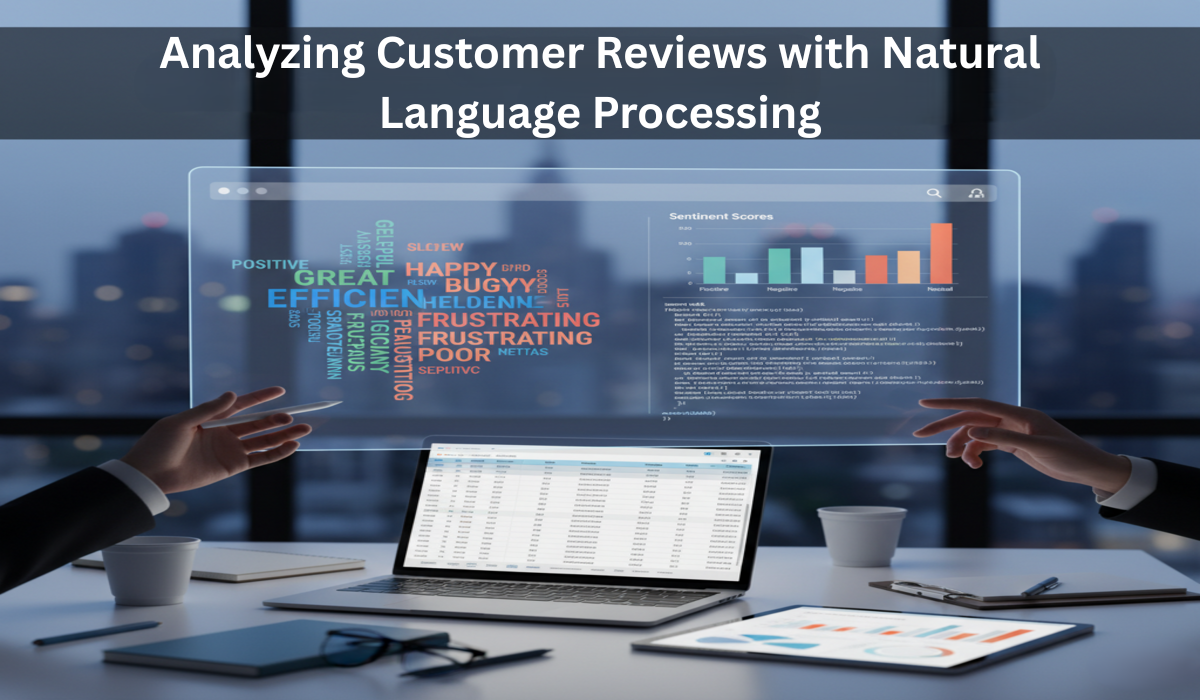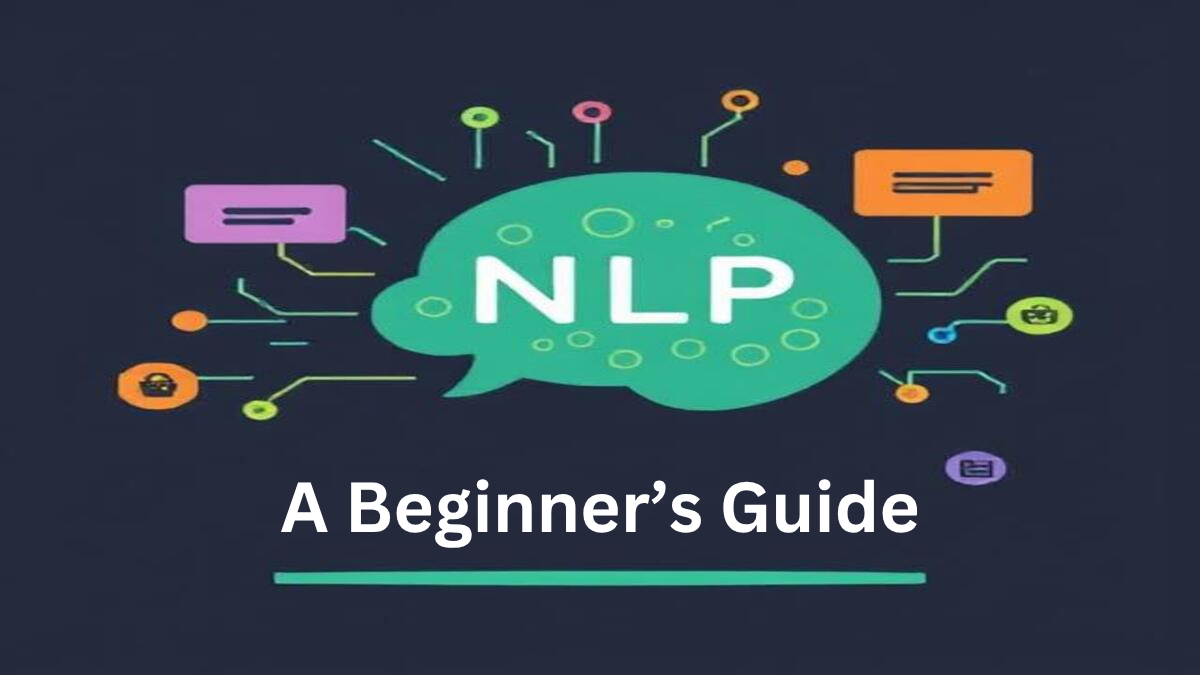Curious about how machines understand human language? This beginner-friendly guide to NLP breaks it down simply. Discover the basics of NLP for beginners with real-world examples and tools.
Table of Contents
Introduction: What Is NLP and Why Should You Care?
Have you ever spoken to Siri, typed into ChatGPT, or used Google Translate? If yes, you’ve already used Natural Language Processing (NLP) without even realizing it. NLP for beginners is all about understanding how computers interpret, process, and respond to human language.
In simple terms, Natural Language Processing helps machines read, understand, and respond to our language the way humans do. Whether it’s customer support chatbots or spam filters, Natural Language Processing is everywhere.
This blog post is a complete guide to Natural Language Processing for beginners—no tech background needed. Let’s simplify it, step by step.
What Exactly Is NLP?
NLP stands for Natural Language Processing. It’s a department of synthetic intelligence (AI) that allows computer systems to have interaction with human beings the use of herbal language—spoken or written.

In easy words: NLP for beginners is the science in the back of how machines examine your emails, translate languages, car-correct your spelling, or even write blog posts.
Why Is Natural Language Processing Important in 2025?
Natural Language Processing is becoming more important every day, especially with the rise of AI assistants, voice searches, and smart automation. Here’s why Natural Language Processing for beginners is worth learning in 2025:

- 🌐 Helps in global communication through language translation
- 📱 Improves human-computer interaction via voice assistants
- 📊 Analyzes large volumes of text data in businesses
- 🤖 Powers AI chatbots and customer service
- 🛡️ Detects spam and harmful content online
Even if you’re not a techie, understanding Natural Language Processing for beginners can open doors to exciting tools and career paths.
How Does Natural Language Processing Work? (Explained Simply)
Let’s break it down for non-technical folks.
NLP works in steps:
1. Tokenization :
Splitting a sentence into words or phrases
Example: “I love AI” → [“I”, “love”, “AI”]
2. Part-of-Speech Tagging :
Understanding word roles
“Love” is a verb, “AI” is a noun
3. Named Entity Recognition (NER) :
Spotting names, dates, places
“Apple” as a company, not a fruit
4. Parsing :
Understanding sentence structure
5. Sentiment Analysis :
Detecting emotions in text
Is the review positive, negative, or neutral?
6. Text Generation :
- Creating meaningful text (like ChatGPT!)
Each of these is a core building block of NLP for beginners.
Common Applications of NLP in Daily Life
You’d be surprised how often you use NLP without realizing it. Here are some common uses:
| Application | NLP Example |
|---|---|
| Voice Assistants | Siri, Alexa, Google Assistant |
| Translation | Google Translate |
| Spam filtering, auto-suggestions | |
| Chatbots | Customer service agents |
| Search Engines | Predictive text, voice search |
| Social Media | Comment moderation, sentiment detection |
Learning NLP for beginners helps you understand these tools better and even create your own!
Top Benefits of Learning NLP for Beginners
- No Coding Required to Start – Many tools use drag-and-drop NLP features
- High Demand – NLP is one of the fastest-growing fields in AI
- Freelance Opportunities – NLP writing, chatbot testing, data labeling
- Improve Digital Literacy – Become more tech-aware
- Cross-industry Relevance – From marketing to healthcare
In short, NLP for beginners is not just a buzzword—it’s a skill worth acquiring.
Popular Natural Language Processing Tools and Platforms for Beginners
You don’t need to build Natural Language Processing models from scratch. Here are beginner-friendly tools:
1. Google Cloud NLP :
- Pre-trained models
- Easy UI
- Sentiment analysis, entity extraction
2. IBM Watson NLP :
- Drag-and-drop NLP
- Voice and chatbot features
3. MonkeyLearn :
- Visual interface
- Text classification and extraction
- Great for non-developers
4. Hugging Face (for when you’re ready for advanced learning) :
- Open-source NLP models
- Used by professionals but has beginner tutorials
These platforms make Natural Language Processing for beginners simple and accessible.
Real-Life Use Case: Analyzing Customer Reviews with Natural Language Processing
Let’s say you run an online business. You get thousands of reviews. Manually reading them is impossible.
With NLP for beginners, you can:

- Classify reviews as Positive/Negative/Neutral
- Detect common complaint areas
- Auto-respond to FAQs using NLP-powered bots
Suddenly, NLP isn’t just tech—it’s saving you time and growing your business.
Top Free Resources to Learn NLP for Beginners :
Want to dive deeper? Here are free resources:
- Google’s AI Learn Platform – Simple modules
- Coursera NLP Courses (Free Audit) – Taught by Stanford, Deeplearning.ai
- YouTube Channels – Like CodeBasics or Simplilearn
- Blogs like AiProInsight 😉 – Beginner-friendly articles (you’re already here!)
- Books – “Speech and Language Processing” by Jurafsky & Martin (advanced but great reference)
Bookmark these to continue your NLP for beginners journey.
NLP vs. Traditional Programming :
| Feature | NLP | Traditional Coding |
|---|---|---|
| Handles human language | ✅ | ❌ |
| Requires exact syntax | ❌ | ✅ |
| Learns from data | ✅ | ❌ |
| Flexible & adaptive | ✅ | ❌ |
| Ideal for automation | ✅ | ✅ (but with effort) |
This table alone shows why NLP for beginners is game-changing.
Myths About NLP (Debunked)
- You need to know Python to use NLP
Not true! Tools like MonkeyLearn need zero code. - NLP is only for tech jobs
Nope! It’s useful in writing, marketing, education, and more. - NLP is not accurate
Thanks to deep learning, NLP accuracy has skyrocketed in recent years.
These myths stop many from exploring NLP for beginners—but you know better now!
Conclusion: NLP Is the Future—Start Today
You don’t need to be a developer or a information scientist to discover NLP. With such a lot of equipment, sources, and use cases, NLP for beginners is now less complicated and more exciting than ever.
Whether you’re using it to jot down, examine, automate, or construct your AI assistant, information NLP for novices offers you a superpower within the cutting-edge international.
So why wait? Start getting to know and exploring NLP for novices—and unlock the manner machines recognize our phrases.
Frequently Asked Questions (FAQs) About Natural Language Processing (NLP)
Q1. What is Natural Language Processing (NLP) in simple words?
Natural Language Processing (NLP) is a department of Artificial Intelligence that helps computer systems understand and respond to human language — similar to we speak with every other. It powers tools like ChatGPT, Google Translate, and Siri.
Q2. Why should beginners learn NLP in 2025?
Learning NLP in 2025 is a great idea because it’s becoming part of our daily lives — from chatbots to smart assistants. For beginners, it offers future career opportunities, boosts digital literacy, and helps understand how AI communicates with people.
Q3. Do I need coding knowledge to start learning NLP?
No! You can start learning NLP without coding. Many platforms like MonkeyLearn, IBM Watson NLP, and Google Cloud NLP offer beginner-friendly, drag-and-drop interfaces that make NLP simple to explore.
Q4. What are some real-life examples of NLP?
You use NLP each day with out knowing it! Examples encompass:
- Voice assistants like Alexa or Siri
- Auto-accurate and grammar test gear
- Email junk mail filters
- Google Translate
- Chatbots for customer service
Q5. Which are the best NLP for beginners?
Some of the best NLP tools for beginners include:
- Google Cloud NLP – For sentiment analysis and text classification
- IBM Watson NLP – Easy to use with voice and chatbot features
- MonkeyLearn – Perfect for non-coders
- Hugging Face – For advanced learners with open-source models
Q6. What are the main tasks NLP performs?
NLP handles several key tasks like:
- Tokenization (breaking text into words)
- Named Entity Recognition (detecting names, dates, companies)
- Sentiment Analysis (finding emotions in text)
- Text Generation (creating text like ChatGPT does)
Q7. Is NLP safe to use?
Yes, NLP tools are safe when used responsibly. Always use trusted platforms, avoid sharing sensitive data, and check privacy settings before uploading personal content.
Q8. How is NLP different from traditional programming?
Traditional programming follows strict syntax regulations, even as NLP is familiar with human language, which may be messy or emotional. NLP learns from records and adapts — it’s more flexible and human-like as compared to conventional coding.
Q9. Can NLP help businesses or freelancers?
Absolutely! NLP can help analyze customer feedback, automate replies, detect spam, and even create AI chatbots. For freelancers, NLP opens opportunities in content writing, data labeling, and digital marketing.
Q10. What are some free resources to start learning NLP?
Here are top beginner-friendly resources:
- Google AI Learn Platform
- Coursera NLP Courses (Free Audit)
- YouTube Channels – CodeBasics, Simplilearn
- Blogs – AiproInsight.com for simplified AI learning
Q11. What is the future of NLP?
The future of NLP is surprisingly promising. As AI grows smarter, NLP will make human-pc conversations greater herbal and beneficial — helping in training, healthcare, advertising, and creative industries.
✅ Pro Tip:
You don’t need to master coding to start with NLP — just curiosity and consistency! Explore simple tools, and slowly learn how machines understand our words.
What’s Next
Top 7 AI Myths You Should Stop Believing


4 thoughts on “A Beginner’s Guide to Natural Language Processing (NLP)”